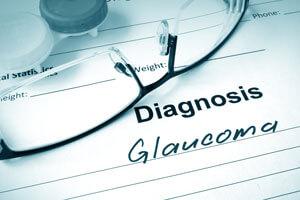Am I at risk for glaucoma?
Glaucoma is a group of diseases that cause damage to the optic nerve, which carries information from the eye to the brain. It is the second leading cause of blindness and visual impairment in the United States, affecting 3 million people. This number is expected to double to over 6 million by 2050.
Worldwide, there are about 60 million people with glaucoma. Experts estimate about half of people with glaucoma don’t know they have it. However, with early detection and treatment, you can often protect your eyes against serious vision loss. If you are at risk for glaucoma, the American Optometric Association recommends a dilated eye examination once a year.
Wouldn’t I be able to tell if I have glaucoma?
The most common type of glaucoma generally develops slowly with virtually no symptoms. Glaucoma progressively causes loss of peripheral vision, which is not as obvious as a change to our central vision. Many people are not aware that they have the condition until they have significant vision loss. Vision lost to glaucoma cannot be restored. If it is diagnosed and treated early, glaucoma usually can be controlled. Medication or surgery can often slow or prevent further vision loss.
What can I do?
See your eye doctor. Regular visits to your ophthalmologist or optometrist for a comprehensive dilated eye exam are the best way to safeguard your vision. Early detection and treatment are vital to preserving vision.
Risk factors for developing glaucoma:
- Age. If you are older than 60, your risk is higher. However, African Americans have an increased risk after age 40. The risk increases slightly with each year of age.
- Race. Glaucoma is more prevalent among African American and Hispanic populations.
- Family history. Having a family history of glaucoma increases your risk.
- Medical conditions. Some studies show that diabetes, high blood pressure, heart disease and obstructive sleep apnea may increase your risk.
- Eye injuries. Severe trauma, such as being hit in the eye, can result in increased eye pressure, which can cause glaucoma.
- Eye conditions. Thinner corneas, optic nerve sensitivity, retinal detachment, eye tumors and eye inflammations may trigger glaucoma. Being very near-sighted is also a risk factor.
- Corticosteroid use. Using corticosteroids (including cortisone, hydrocortisone and prednisone) for prolonged periods of time may increase your risk.
